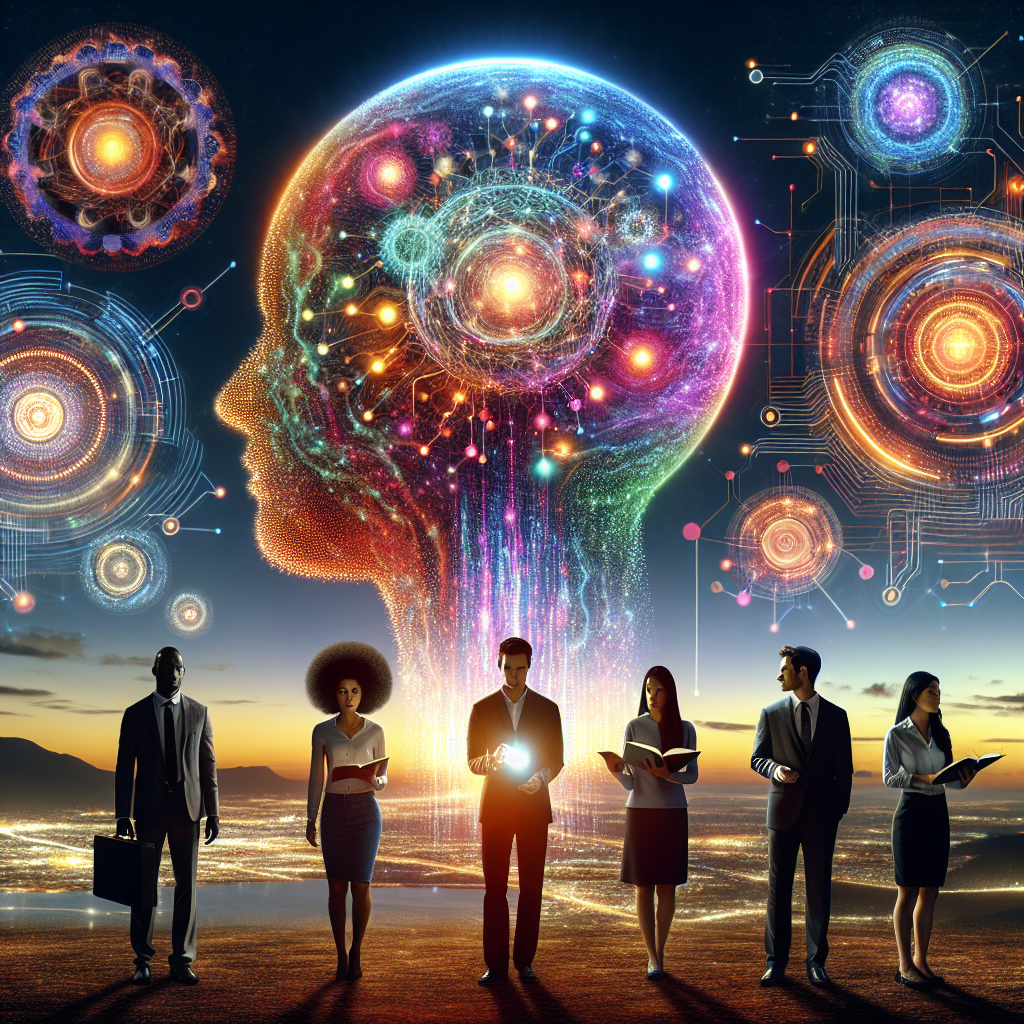In the dynamic and fast-changing environment of today, education transcends traditional classroom boundaries. Lifelong learning has become essential, driving individuals to continuously enhance their skills and knowledge throughout their lives. In this pursuit, artificial intelligence (AI) has emerged as a valuable partner, providing a range of tools that promote personal growth and learning beyond conventional education.
The Emergence of Lifelong Learning
Lifelong learning indicates a continuous, voluntary, and self-driven quest for knowledge aimed at personal or professional growth. As industries evolve rapidly due to technological advancements, adaptability is key. Embracing lifelong learning enables individuals to remain relevant, developing skills crucial for career progression, personal fulfillment, and cognitive health.
AI-Enhanced Learning Tools
The rise of AI has significantly altered the educational and self-development landscape, offering tailored and effective learning experiences. Below are notable AI learning tools that illustrate this transformation:
1. Personalized Learning Platforms
AI-driven platforms like Coursera, Udacity, and edX offer customized learning paths based on individual interests, pace, and skill levels. Using algorithms, these platforms recommend courses and resources, allowing learners to focus on areas they wish to improve or explore.
2. Intelligent Tutoring Systems
Tools such as Carnegie Learning’s MATHia and Duolingo leverage AI to replicate one-on-one tutoring. They track a learner’s progress, identify gaps in understanding, and adapt teaching approaches accordingly. This personalized feedback loop enhances effective learning and improves retention.
3. Skill Acquisition Applications
Apps like LinkedIn Learning and Skillshare utilize AI to recommend courses aligned with a user’s career path or interests. These platforms often feature bite-sized videos and interactive content, making it easy to learn anytime, anywhere.
4. AI-Enhanced Language Learning
Rosetta Stone and Babbel incorporate AI to create immersive language learning experiences. These platforms assess users’ pronunciation and provide immediate feedback, making language learning more engaging and effective.
5. Virtual Reality (VR) and Augmented Reality (AR)
Combining AI with VR and AR technologies facilitates experiential learning. Platforms like ENGAGE provide virtual classrooms where learners can interact in dynamic environments. This hands-on approach is particularly valuable in fields like medicine and engineering.
6. Chatbots and Virtual Assistants
Educational chatbots, integrated into learning platforms or institutions, offer immediate assistance by answering queries, guiding through course materials, and fostering collaborative learning. These AI tools improve user engagement and enhance information accessibility.
Advantages of AI in Lifelong Learning
-
Accessibility: AI learning tools overcome geographical and time constraints, enabling learners to access information whenever and wherever they need it.
-
Customization: With personalized suggestions and tailored experiences, individuals can shape their education according to their specific needs and objectives.
-
Efficiency: AI quickly analyzes vast amounts of data, helping learners pinpoint the most relevant content and reducing time spent searching for resources.
-
Continuous Feedback: Instant assessments and feedback nurture a growth mindset, motivating learners to strive for improvement and tackle challenges.
- Engagement and Motivation: Gamified learning experiences and interactive content increase user engagement, making the education journey enjoyable and motivating.
Challenges and Considerations
While AI offers many benefits, it also presents important ethical issues. Concerns about data privacy, algorithmic bias, and reduced human interaction in educational contexts must be addressed. Developers and educators must prioritize ethical considerations, ensuring that AI tools complement rather than replace traditional learning methods.
Conclusion
As we navigate a complex world, AI learning tools are creating innovative pathways for lifelong learning and skill enhancement. By leveraging AI’s capabilities, individuals can embark on a continuous education journey tailored to their unique aspirations. Adopting these technologies not only promotes personal growth but also equips learners to excel in a rapidly evolving job market and society. The future of education is undoubtedly promising, extending well beyond the confines of the classroom.

